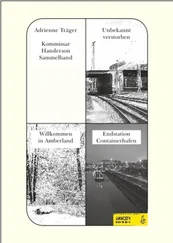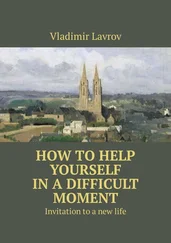“Open your hands,” Marion instructed, and I did so, making a little bowl. She shook a bit of the dirt onto my palms.
“And you all just thought I could do this? Because I seem… open?”
“Well, that,” Cindy agreed. “And, honestly, none of us wanted to. We figured if you said no, we’d tell Margaret you follow her around copying her every move.”
“What?” I retracted my hands a bit, losing a light dusting of soil.
“Careful!” Cindy said. “Look, it’s no big deal. We just thought, if we were Margaret, then we wouldn’t want our creepy roommate tailing us like a creepy shadow. Not that you’re necessarily creepy,” she assured me with a shrug. “And I mean, you said yes, so we don’t have to tell Margaret anything anyway.”
My face burned. In a way, it had worked: my plan to get noticed and find my place among the other girls. But this was not the place I had wanted, or the notice I was hoping for. The ghostly dirt felt cool in my hands, and gave off the vaguest scent of grass and stone.
“What do we do now?” I asked, not looking up.
“Now we’re going to say a poem,” Marion told me. She was the calmest of them, and her voice was pleasant. Lulling. “You just listen to the poem, and each of us will light a candle. Then the Gray Governess is supposed to speak.”
“Ok,” I said. It didn’t sound so bad. Around me, everyone nodded, and Adeline gently pushed me into the center of the circle. I sat down, and they arranged themselves at an even distance, pulling out short tapers and passing a box of matches hand to hand. Louise stood up and turned off the lights. There was just the soft glow of the candles.
Later I would realize the poem was in the Donne School charter, and I would wonder how they came to select it for this particular task. But at the time I barely caught the words—all I took in was the sense they were talking of honesty, clarity, a peculiar girl. I supposed she must be me. I closed my eyes, and the poem rumbled across me like waves. I thought of the whale, which I’d seen from the ship that brought me to America. I thought of my mother, singing gentle lullabies. And my father, frowning at me, beginning to change from the lighthearted man I knew in my early childhood into someone suspicious, hollow-cheeked, and stern.
He had been a true believer in the revolution that killed the centuries-old Tsarist regime with the aim of redistributing all the aristocracy’s land and wealth. He was, too, a passionate advocate of the idea that the workers of the world would unite, that we shared a spirit which would help us ascend to a place of equanimity and humble goodness. I loved his faith, as it was all that I knew, and loved it more when he began to rise in the Party, bringing home meat from the most recalcitrant butcher and offering us little presents: a comb or a ribbon, a locket with his picture inside. The modest lift in our household status seemed to confirm that his faith was justified, that the Party was right in all it said.
But as the years went by in Moscow, something changed for him, and then, slowly, it changed for me. Though I was still obedient, my political observance stopped pleasing him, somehow—even simple expressions of enthusiasm for the Party or our brave new world made him look at me with suspicion. When he told me we wouldn’t be going back to Lipetsk because the Party thought his skills were needed elsewhere, I was overjoyed at the idea of staying in the city and danced around the room, singing a little song I made up on the spot. ( Kto yez-dit? Ni-k-to. Kto sidit zdes’? Ya, horosho! Who’s going? No one. Who’s staying? Me!) But he was ashen. “Don’t you see?” he asked me. “It isn’t right. If I’m not there to help with the harvest, who will do my work for me? Someone will have to do it for me.” I didn’t understand why this upset him. But he wouldn’t stop talking about it, or about the other items on his growing list of qualms. Opulent meetings. Peculiar methods. Privileges withheld from the many for the benefit of the few.
In very little time our social ascension slowed, then stopped. I pestered my father with questions—innocent ones mostly, about when we’d be getting more food rations and why it was that the Party wasn’t happy with us. Hadn’t we all been happy before? Apparently I pressed this particular issue hard enough that something in my father snapped. One day as we were setting the table for dinner I asked again, and he grabbed my shoulders, stopping me on the way from the stove to the table and upsetting a platter of food in my hands. “It’s better to be good,” he told me, “than to be happy. Remember that, Zoya.” His eyes scared me. I threw the platter down and ran away from him, hiding my tears behind my hand. It wasn’t long before he was gone.
All these scenes drifted in front of me as I sat in the Donne School library with my eyes pinched shut, carpet scratching against my thighs. At some point the other girls stopped reciting the poem, but I didn’t notice. There were images in front of me. People in the shadows. Someone with something urgent to say.
“God, snap out of it.” It took me a moment to realize that Adeline was shaking my shoulder. “It’s no good if you don’t speak English. What was she saying?”
“What?” I blinked, as bleary-eyed as if I’d just awoken from a deep sleep. “Was I talking?”
“Oh my god, yes, it worked, but you were just saying, like, gobbledygook.” She rubbed her forehead. “How are we supposed to know what she told us?”
“Who?”
“The Gray Governess! The whole point of all this?” Cindy piped in now, looking just as cross as Adeline. “Is there something we’re supposed to do? So our grades are good? Did she tell us to eat dandelion leaves or something?” A few other girls turned to Cindy, curious, and she blushed. “I heard that somewhere, that she told people that.”
Ti’ budet bolshe, I suddenly remembered. Ti’ budet luchshe. There had been a voice of some kind, after all.
“I think she told me we’d get better?” I said. I didn’t know how to explain what that meant, or that the grammar of the words spoke only to me. You’ll be more, you’ll be greater—you in the singular, meaning not the rest of them. As the girls around me perked up, I sensed now was not the time to try to make them understand.
“That seems kind of promising,” Olivia said. Then she peered at me. “Are you sure that’s actually what she told you though? You seemed kind of—I don’t know. Sick. Off.”
“Off of what?”
“It’s—Who cares. It’s an expression. But you didn’t look normal. Your eyes were all weird.”
“Weren’t they closed?”
“Oh my god, you didn’t know you opened your eyes?” Cindy looked horrified. “Ok, this is getting creepy. Somebody turn on the lights.”
Marion started to cry, softly. “Jesus wouldn’t love this,” she said.
“Oh hush,” said Adeline.
The lights came on and the girls blew out their candles. No one seemed to be paying much attention, so I let the dirt fall through my fingers onto the ground, brushing my palms together to get them clean.
“Uh, we’ll see you later,” Cindy said as she stood up to leave. “And, um, thanks, I guess.”
“Sure,” I told her. I let the other girls disperse without me, not quite trusting myself to stand while they were watching. My legs were jelly: I had to use the stair rail to keep myself on my feet as I made my way back into the library proper. Back at my desk I was startled to find the Schopenhauer book upright, the philosopher’s dyspeptic face staring straight into my own. I knew that someone had probably just come by and turned it out of curiosity, but the sight made my throat tighten up. I returned the book to the woman at the front desk without finishing it, and simply skipped that assignment—a book report, which, curiously enough, our teacher never collected.
Читать дальше












